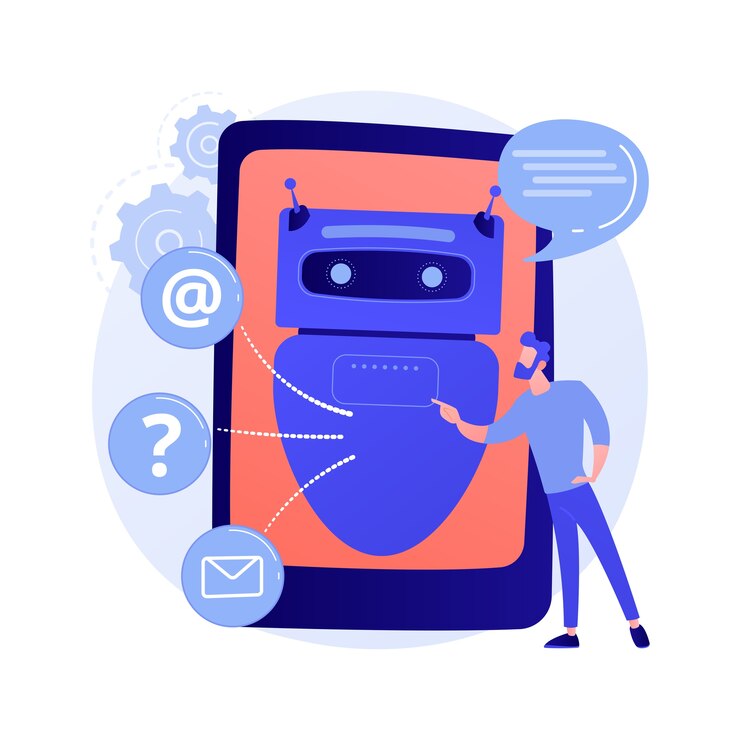Generative Artificial Intelligence (AI) has emerged as a transformative force across various industries, and one of its most promising applications is in customer service. Businesses are increasingly exploring the potential of Generative AI to enhance customer interactions, streamline operations, and drive growth. However, as this technology becomes more prevalent, there is a need for responsible deployments, thorough pilots, and best practices to ensure it is used with the right intentions. In this article, we will delve into what Generative AI in customer service involves, its growing importance in changing the business landscape, and the pivotal role it plays in data privacy.
What is Generative AI in Customer Service? Generative AI is a subset of artificial intelligence that focuses on creating content, such as text, images, or even video, that is indistinguishable from content generated by humans. In customer service, Generative AI is used to develop chatbots and virtual assistants capable of holding natural and meaningful conversations with customers. These AI systems can answer questions, resolve issues, and provide recommendations, all while simulating human-like interactions.
Deployments and Pilots: Why and How to Do It Right
As Generative AI evolves, many companies are eager to adopt it to gain a competitive edge. However, the rush to implement this technology can lead to hasty deployments that may not fully align with customer needs or business objectives. To ensure success, companies should approach Generative AI deployments with a well-considered strategy:
Identify Use Cases: Start by identifying the specific customer service use cases where Generative AI can add value. It could be in automating routine inquiries, providing real-time support, or personalizing interactions.
Data Collection and Preparation: High-quality data is the foundation of effective Generative AI. Collect and clean data from various sources to train your AI model, ensuring it understands customer queries and context.
Thorough Testing: Before rolling out Generative AI in customer service, conduct thorough pilot programs to refine the model's performance. Pay attention to user feedback and iteratively improve the system.
Human Oversight: While Generative AI can handle many tasks autonomously, it's crucial to have human agents in the loop, ready to intervene when needed. This ensures the quality of customer interactions and maintains trust.
Data Privacy: Prioritize data privacy by implementing strong encryption, access controls, and compliance with relevant regulations like GDPR or CCPA. Customer data must be handled with care and transparency.
Changing the Business Landscape, Generative AI in customer service is poised to change the way businesses operate in several key ways:
Improved Efficiency: By automating routine tasks and inquiries, Generative AI reduces response times and frees up human agents to focus on more complex issues.
Enhanced Customer Experience: Customers benefit from 24/7 availability, quick responses, and personalized interactions, leading to higher satisfaction and loyalty.
Cost Reduction: Companies can significantly reduce operational costs by automating customer service functions, as they no longer require large teams of human agents.
Data-Driven Insights: Generative AI generates valuable insights by analyzing customer interactions, helping businesses make data-driven decisions to improve products and services
Data Privacy in Generative AI: Opportunities and Challenges, data privacy is a critical concern in the era of Generative AI. While this technology holds great promise, it also poses risks if not handled responsibly. Here are some opportunities and challenges related to data privacy:
Opportunities:
Personalization: Generative AI can provide highly personalized experiences by analyzing customer data, but this must be done while respecting privacy regulations and user consent.
Security: AI systems can enhance cybersecurity by detecting and mitigating threats in real-time, safeguarding sensitive customer information.
Transparency: Transparency initiatives, such as explainable AI, can help build trust with customers by providing insights into how AI makes decisions.
Challenges:
Data Breaches: The more data an AI system handles, the more attractive it becomes to hackers. Protecting customer data is paramount.
Bias and Fairness: AI models can inherit biases present in training data, potentially resulting in discriminatory or unfair outcomes. Companies must address bias proactively.
Regulatory Compliance: Staying compliant with ever-evolving privacy regulations requires continuous monitoring and adaptation of AI systems.
Generative AI in customer service is a game-changer for businesses, offering efficiency, enhanced customer experiences, and data-driven insights. However, responsible deployments, thorough pilots, and best practices are essential to harness its full potential. Companies must also prioritize data privacy, leveraging Generative AI to offer personalized services while maintaining the utmost respect for customer information. With careful planning and responsible use, Generative AI can drive positive changes in both business operations and customer satisfaction.




Comments